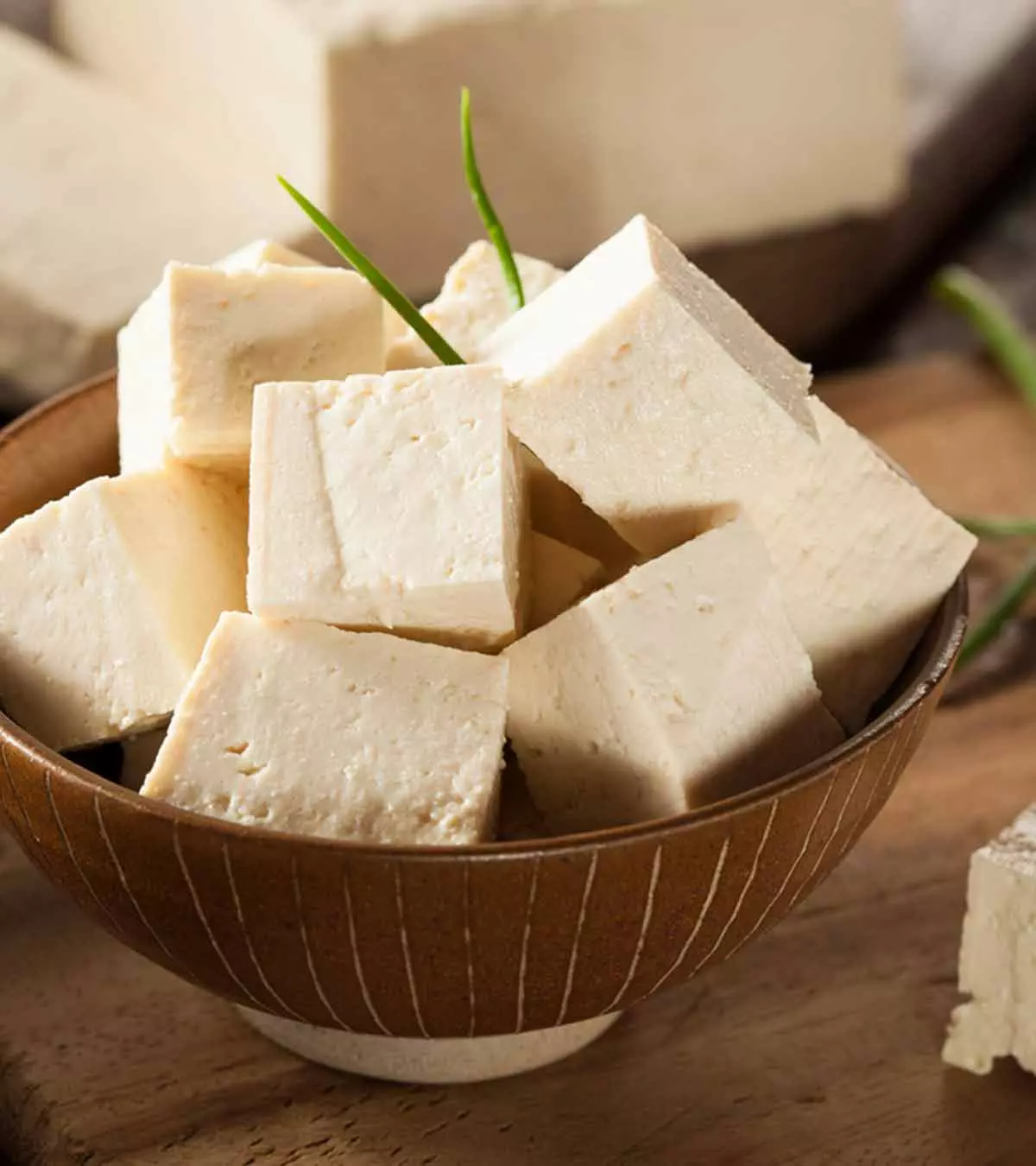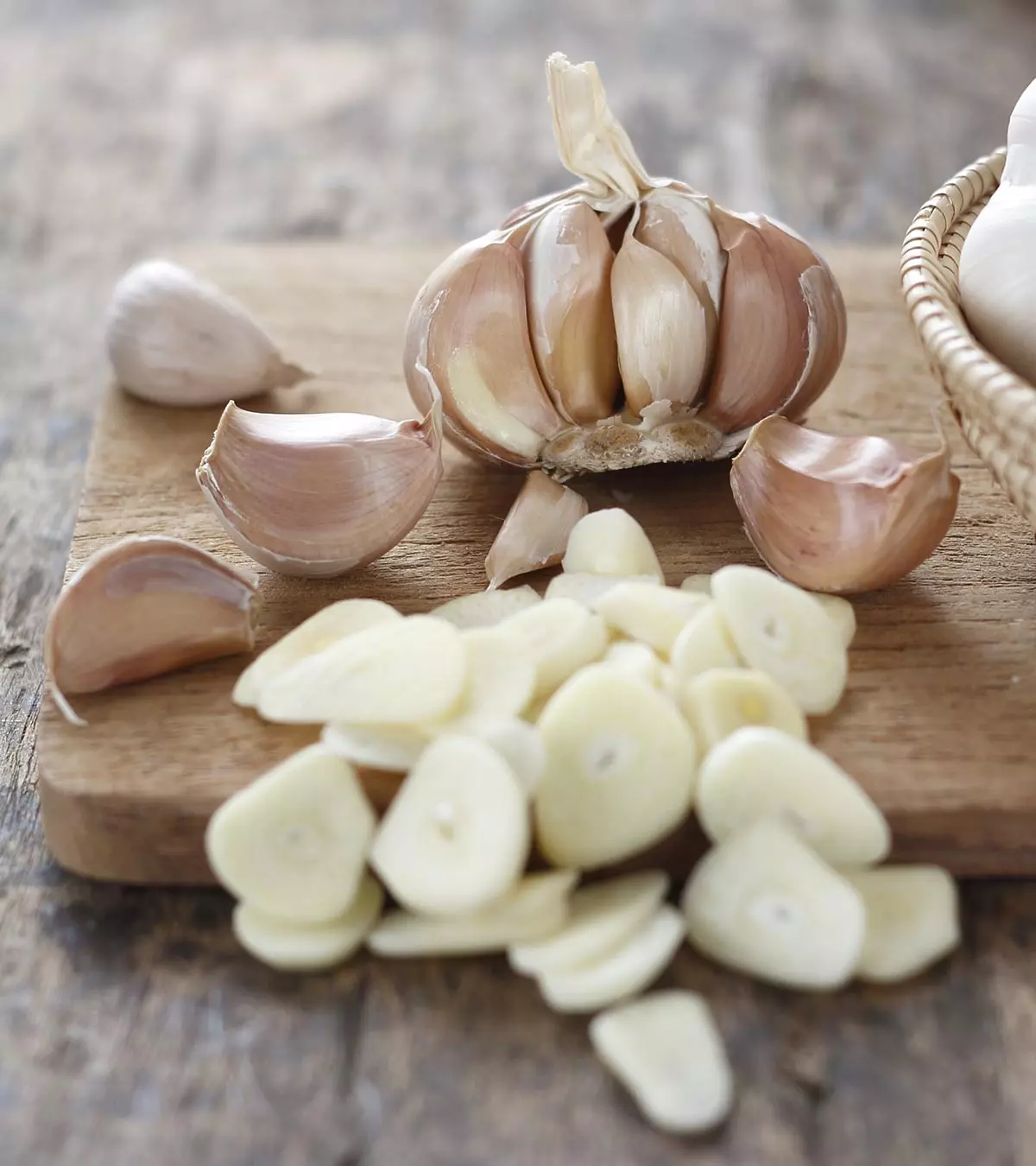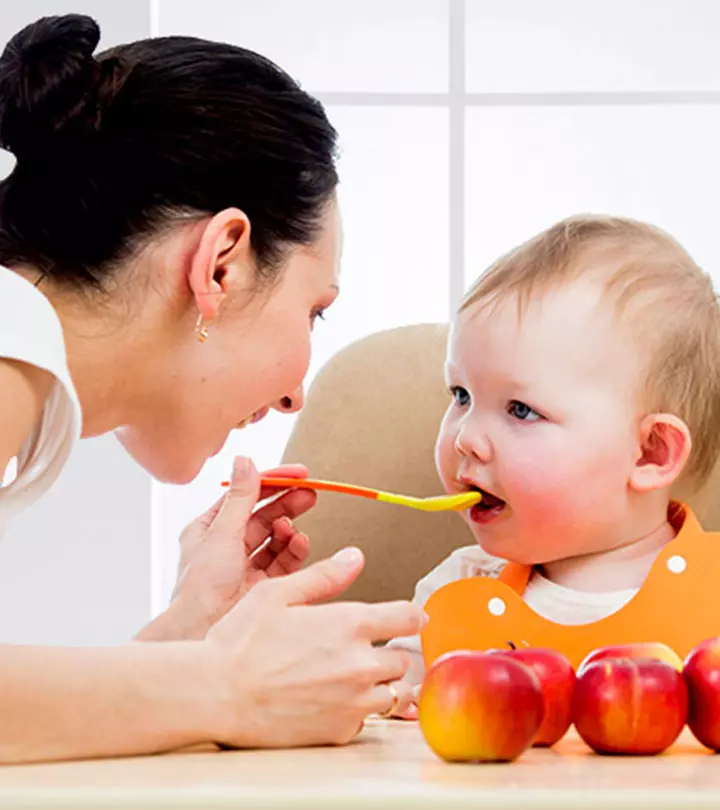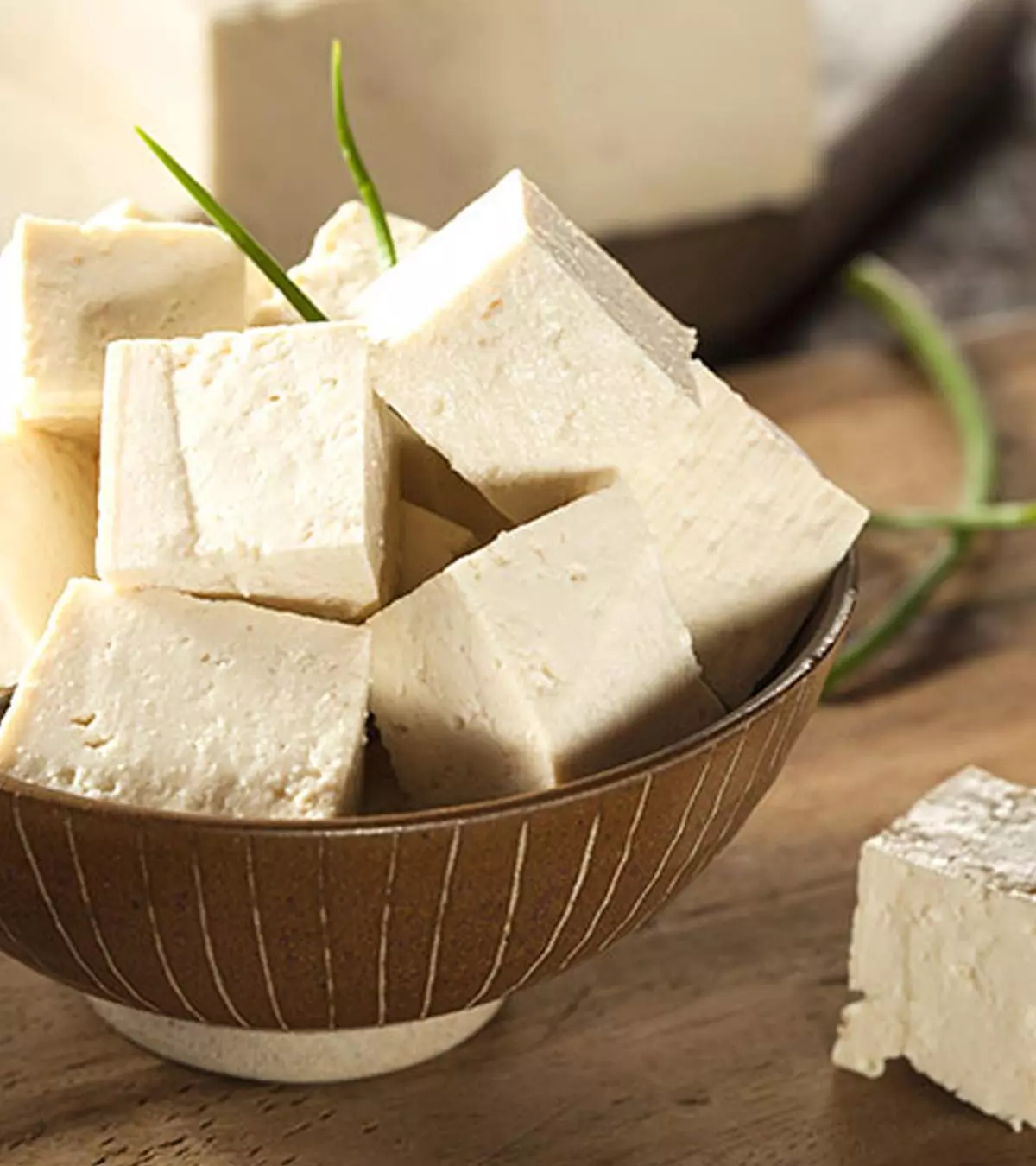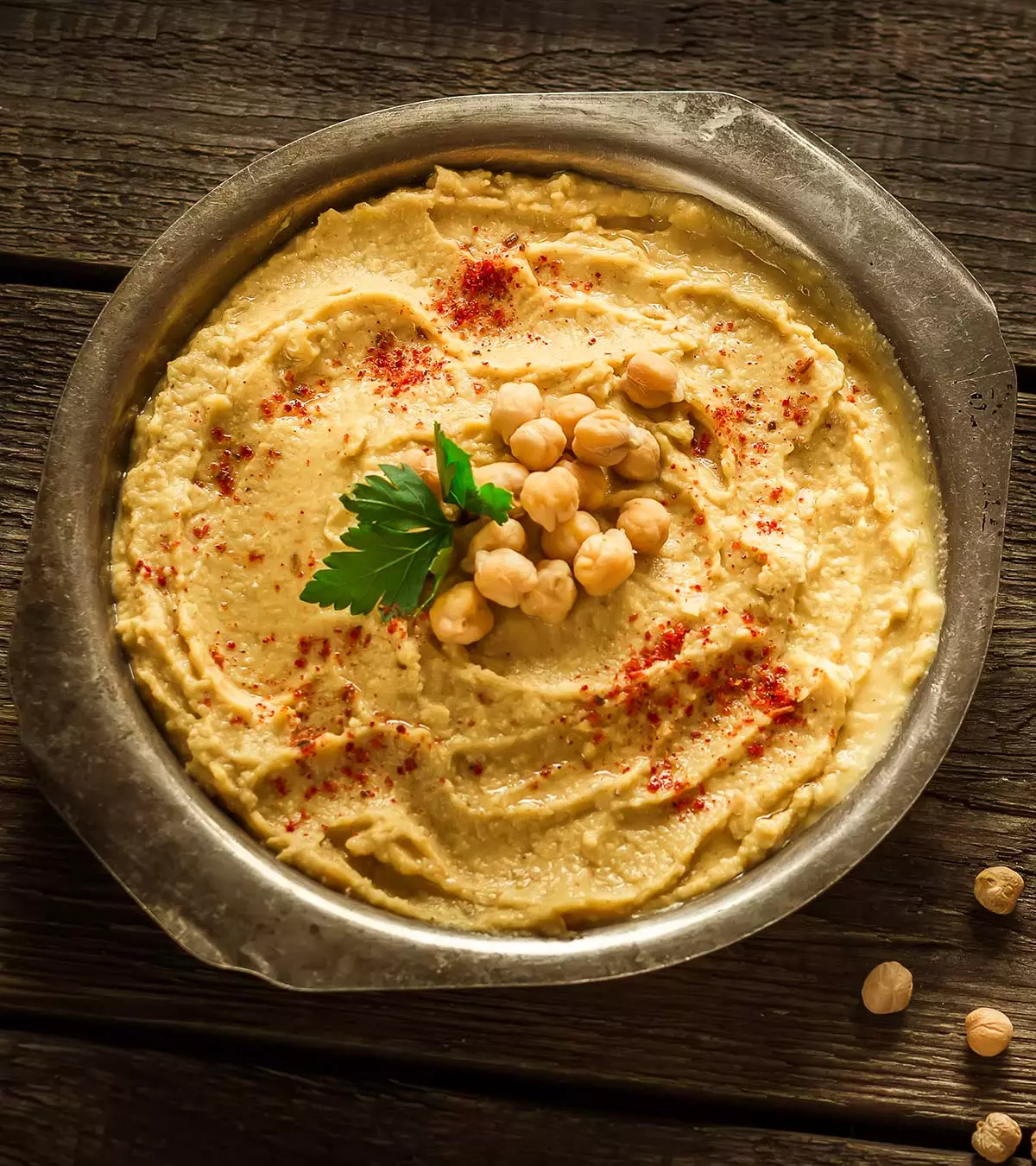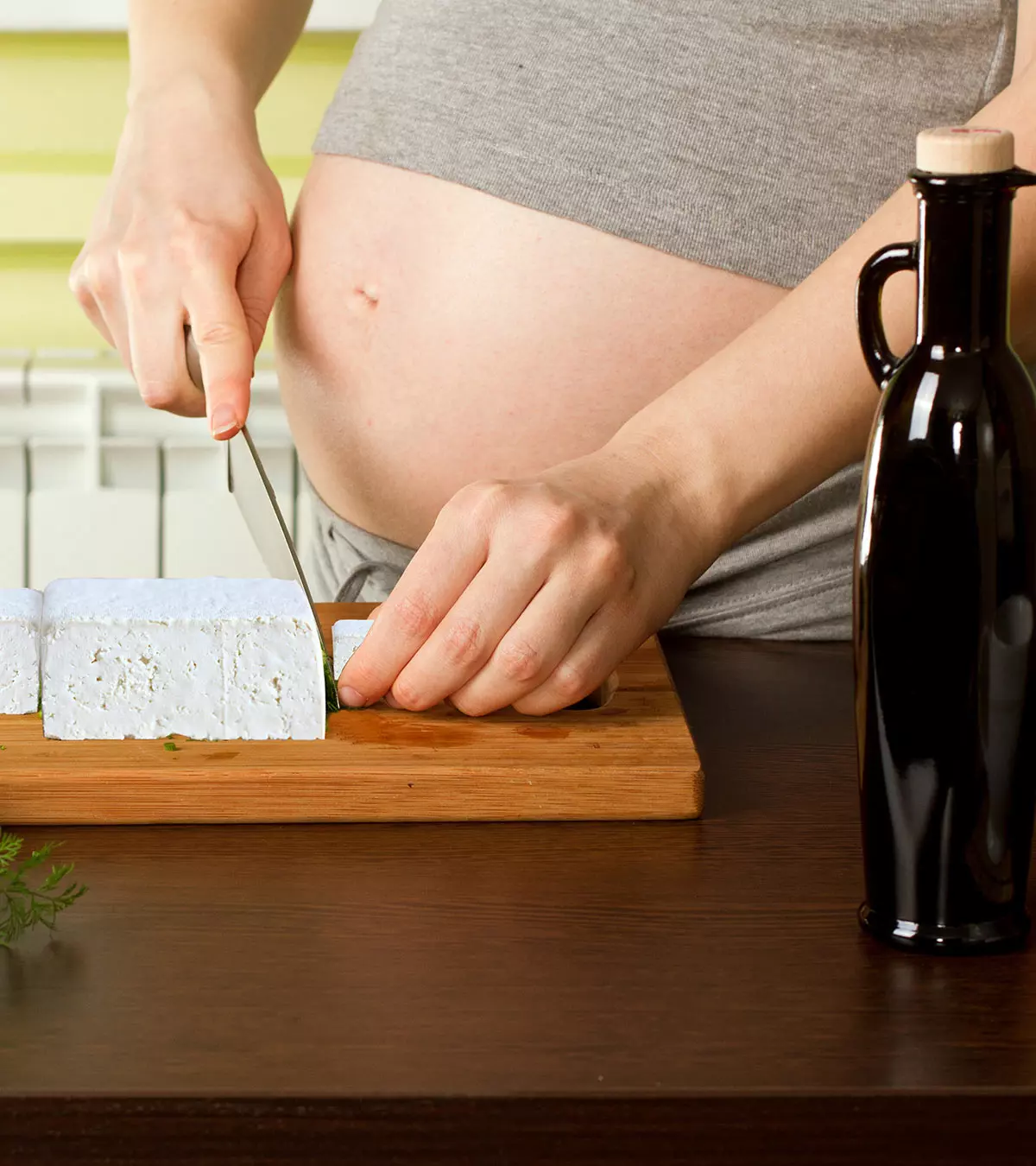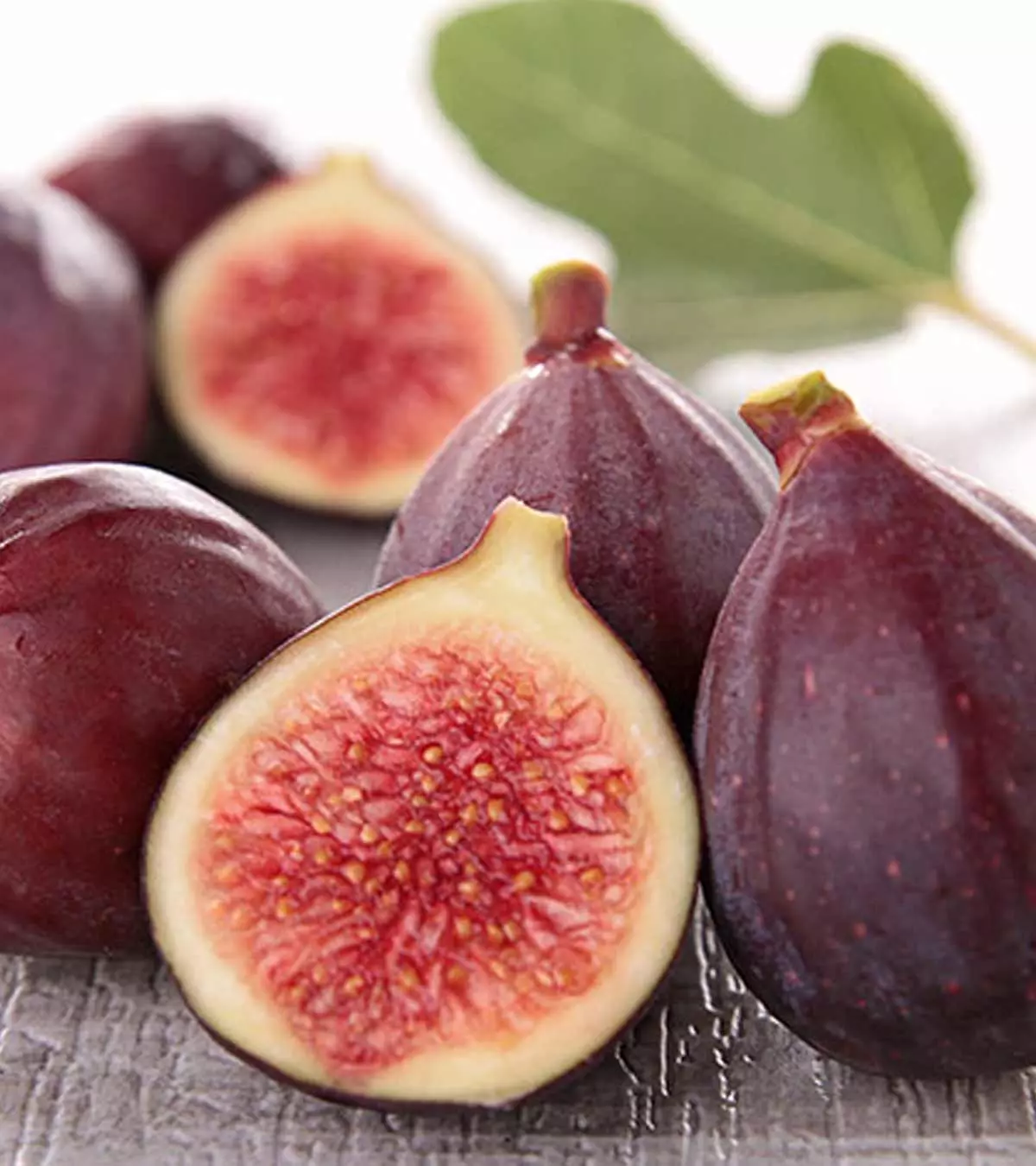
Image: ShutterStock
Fresh and dried figs in pregnancy are safe to consume. These contain higher amounts of fiber and minerals such as iron, magnesium, etc., when compared to other vegetables, fruits, and nuts. They are rich in antioxidants too. Consuming fiber-rich foods helps to avoid constipation and related complications in pregnancy. You may eat a few figs (anjeer) to manage sugar cravings. Pregnant women with already known allergies to figs should avoid consuming them.
Read on to know more about the benefits, risks of excess consumption, the safety of figs in pregnancy, and ways to add moderate amounts of figs into your pregnancy diet.
Key Pointers
- Pregnant women can consume fresh and dried figs in moderation, with a recommended limit of 3 figs per day.
- Figs are rich in essential minerals, vitamins, carbohydrates, and fats that are beneficial for health.
- Health benefits associated with figs consumption include the improvement of balanced acid levels, digestion, and a reduced incidence of preeclampsia.
- However, excessive consumption of figs may lead to adverse effects such as loose stools, elevated glucose levels, low blood pressure, and photodermatitis.
Can You Eat Figs During Pregnancy?
Both fresh and dried figs are safe to consume during pregnancy, albeit in moderate quantities. Figs are among the healthiest and best fruits to eat during pregnancy as they contain essential minerals, sugars, fats, iron, and calcium that the mother-to-be and the baby need (1). Excess consumption of figs is associated with diarrhea and tooth decay due to the high sugar content in the fruit. Thus too much of the fruit may pose a risk of gestational diabetes.
Eva De Angelis, a dietitian nutritionist and health and nutrition writer from Argentina, says, “Up to three figs per day are safe during pregnancy. Even though they’re highly nutritious, filled with much-needed nutrients, eating too much can raise your blood sugar levels.”
Nutritional Profile Of Figs
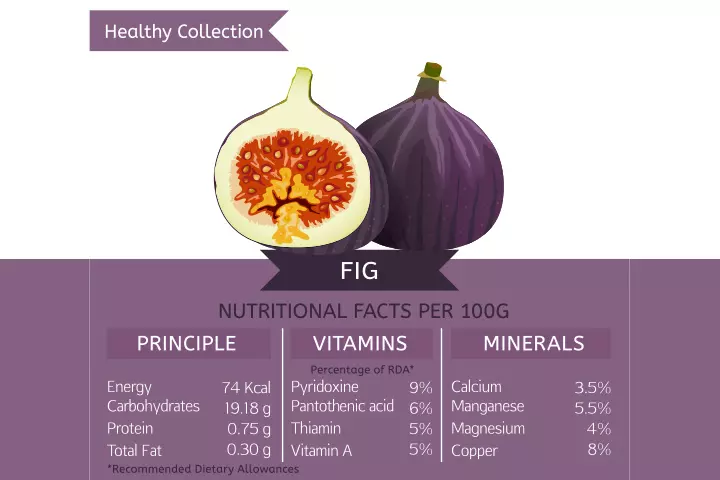
Figs have a distinct honey-like flavor and differ from other fruits in their taste and the medicinal benefits they offer. Figs are rich in minerals like iron, calcium, potassium, phosphorus, magnesium, and copper. They also contain vitamins A, D, E, K, and B complex, natural sugars, soluble fibers, organic acids, and omega-3 fatty acids.
Interestingly, it is a low-calorie fruit and a good option for those looking to control their pregnancy weight gain.
According to the United States Department of Agriculture (USDA), one medium-sized fruit (about 50g) provides 37 calories, 10g carbohydrates, 8g sugars, 1.5g dietary fiber, 0.15g fat, 18mg calcium, 8mg magnesium, 7mg phosphorus, 116mg potassium, 3mcg folate, 4mcg vitamin A, and 3mcg vitamin K (2).
 Did you know?
Did you know?Health Benefits Of Consuming Figs During Pregnancy

“Figs are nourishing fruits that satiate sweet cravings during pregnancy while giving multiple health benefits. This fruit may help you manage morning sickness, especially during the first trimester, thanks to its high vitamin B6 content. Figs can help you improve digestion due to their proteolytic enzymeiEnzymes that break down proteins into smaller peptides or amino acids, and known as proteinases or proteases. content. Moreover, figs are one of the richest fruits in calcium, iron, potassium, and zinc, all crucial minerals for proper fetal development and healthy pregnancy,” says De Angelis.
When consumed in reasonable quantities, figs can benefit maternal health.
- According to the Centers for Disease Control and Prevention (CDC), preeclampsia occurs in approximately five to seven percent of pregnancies. The potassium in figs helps manage blood pressure levels and could reduce the risk of preeclampsia in pregnant women (3).
- Figs have high dietary fiber and were traditionally used as laxatives. They can be taken in moderation to deal with constipation and other digestive issues (4).
- Figs are alkaline and can balance the acid levels in the body.
- PsoralensiLight-sensitive plant compounds commonly used in the treatment of skin conditions, such as psoriasis and vitiligo. , a chemical found in figs, could help clear skin pigmentation issues such as melasma.
 Quick fact
Quick factWhile these benefits may encourage you to include figs in your prenatal care diet, you should always consult your doctor before doing so to reduce the risk of any side-effects.
Possible Side-effects Of Eating Figs During Pregnancy
Excess consumption of figs could lead to side-effects such as:
- Loose stools
- A drop in the blood pressure and blood glucose levels
- Allergies, if you are already allergic to pollen or fruits of the mulberry family
- PhotodermatitisiA skin condition caused by an abnormal reaction to the UV light from the sun. due to excess psoralens entering the body
Stop eating figs if you experience any of these side-effects. Choosing the right variety and quality of figs is also essential to benefit from the fruit.
How To Select And Store Figs?
Never shopped for figs before? Don’t worry. We tell you how to choose and store figs for consumption during pregnancy.
- Fresh figs are available between mid-June and mid-October.

- When going for fresh figs, choose those with smooth and plain skin.
- Fresh ones will be clean, dry, and soft to touch.
- Avoid taking figs that smell slightly sour as they may have started to ferment and may not be suitable for consumption.
- When stored in the coldest area inside the refrigerator, they can remain fresh for up to two days.
- Canned figs will be good to eat for at least one year. Refrigerate them for a longer shelf life.
Ways To Include Figs In Your Pregnancy Diet
You can eat the fruit fresh, as-it-is along with its skin. Other ways of consumption are:
- You can have dried figs as snacks and also to satiate your cravings for sweets.
- Add figs to milk to make milkshakes, ice creams, or other desserts.
- Add fresh or dried figs to salads.
- Fig juice is also a good option.
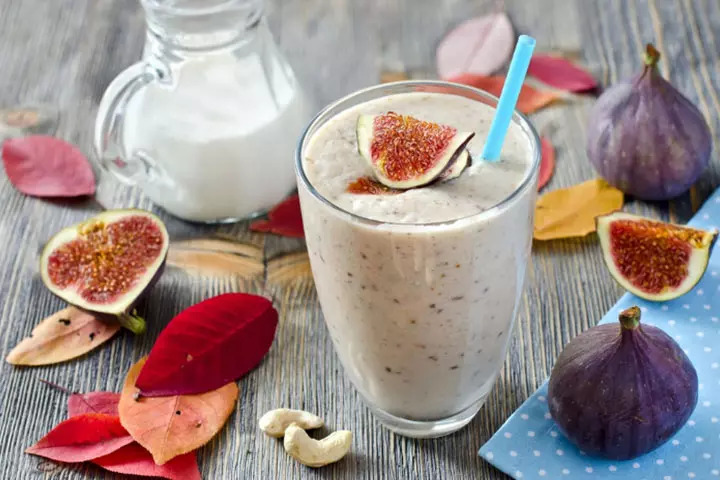
- Cook around 500g chopped figs with one cup of sugar on a low flame until the mixture is thickened to make fig preserve.
- Add to bread, cakes, and flour-based items for extra flavor.
- Blend fresh figs, yogurt, a banana, and a handful of spinach for a nutritious smoothie.
 Quick tip
Quick tipFig Recipes For Pregnancy
Here are two simple and easy-to-make recipes that can help you incorporate the goodness of figs into your pregnancy diet.
1. Fig salsa

You will need:
- 1 cup fresh figs (diced)
- 1/2 cup tomatoes (finely chopped)
- 1/4 cup red onion (finely diced)
- 1/4 cup fresh cilantro (chopped)
- 1 jalapeño (seeded and finely chopped)
- 1tbsp lime juice
- 1tbsp honey
- Salt to taste
How to make:
1. In a bowl, combine diced figs, chopped tomatoes, red onion, cilantro, and jalapeño.
2. Drizzle lime juice and honey over the mixture.
3. Gently toss everything together until well combined.
4. Add salt to taste and refrigerate for at least 30 minutes to let the flavors meld.
5. Enjoy the chilled salsa with whole-grain tortilla chips or as a topping for grilled chicken or fish.
2. Fig Parfait
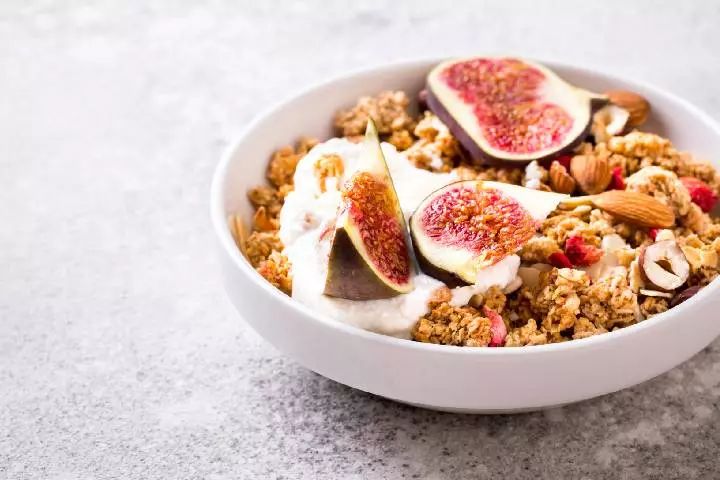
You will need:
- 1 cup Greek yogurt
- 1/2 cup fresh figs (sliced)
- 1/4 cup granola
- 1tbsp honey
- 1/4 cup chopped nuts
How to make:
1. In a glass or bowl, spread a layer of Greek yogurt.
2. Add a handful of sliced fresh figs on yogurt.
3. Sprinkle a layer of granola over the figs.
4. Drizzle honey over the granola layer.
5. Repeat the layers until you reach the top, finishing with a sprinkle of chopped nuts.
6. Enjoy the fig parfait as a nutritious and satisfying snack or breakfast option.
It is safe to consume dried and fresh anjeer or figs during pregnancy. Although figs are packed with nutrients, you may consume them in moderation since the sugar content could cause tooth decay and diarrhea. Potassium and dietary fibers in figs are beneficial for pregnant women as they help manage blood pressure and relieve constipation. Avoid figs if you are allergic to pollen or fruits from the mulberry family. You may purchase fresh figs, store them in cold temperatures, dry them, and place them in air-tight containers.
Frequently Asked Questions
1. Are there any differences in the nutritional benefits between fresh and dried figs during pregnancy?
According to the United States Department of Agriculture, fresh figs are a better source of vitamin C, vitamin A, and beta-carotene than dried figs that contain more calories, dietary fiber, sugar, and minerals. Whichever you consume, ensure to consume them in moderation and consult your healthcare provider before incorporating them into your diet (2)(7).
2. Can consuming figs during pregnancy affect the taste or quality of breast milk?
There are no specific studies conducted on how figs affect the taste and quality of breast milk. Before incorporating figs into your diet while breastfeeding, consult your doctor for proper guidance.
Infographic: How To Eat Figs During Pregnancy?
Although there are numerous ways to enjoy figs, you need to be careful about your diet during pregnancy because too much fig consumption or mixing it in a dish with more sugar and pepper could be harmful. So look at the infographic below to discover some healthy fig-eating options for expectant mothers. Illustration: Momjunction Design Team
Illustration: Figs (Anjeer) During Pregnancy: Benefits And Side Effects
_during_pregnancy_benefits_and_side_effects_illustration.jpg.webp)
Image: Stable Diffusion/MomJunction Design Team
References
1. Luxita Sharma; Exclusive Food Product Researches; Page 10
2. Figs, raw, FDC ID: 173021; Food Data Central; USDA
3. Potassium Food List; University of Louisville
4. Fiber, Digestion, and Health; Cornell Health (2012)
5. Are figs good for you? Get the whole sweet story; American Heart Association
6. The health benefits of figs; Leon Fruit and Nut Exchange
7. Figs, dried, uncooked; FDC ID: 174665; Food Data Central; USDA
Community Experiences
Join the conversation and become a part of our nurturing community! Share your stories, experiences, and insights to connect with fellow parents.
Read full bio of Dr. Shikha Sharma
- Eva De Angelis is a dietitian nutritionist and chef from Argentina. She holds a BS in Human Nutrition and Dietetics from Universidad ISalud and is in private practice.
 Eva De Angelis is a dietitian nutritionist and chef from Argentina. She holds a BS in Human Nutrition and Dietetics from Universidad ISalud and is in private practice.
Eva De Angelis is a dietitian nutritionist and chef from Argentina. She holds a BS in Human Nutrition and Dietetics from Universidad ISalud and is in private practice.
Read full bio of Swati Patwal
Read full bio of Rebecca Malachi
Read full bio of Aneesha Amonz






